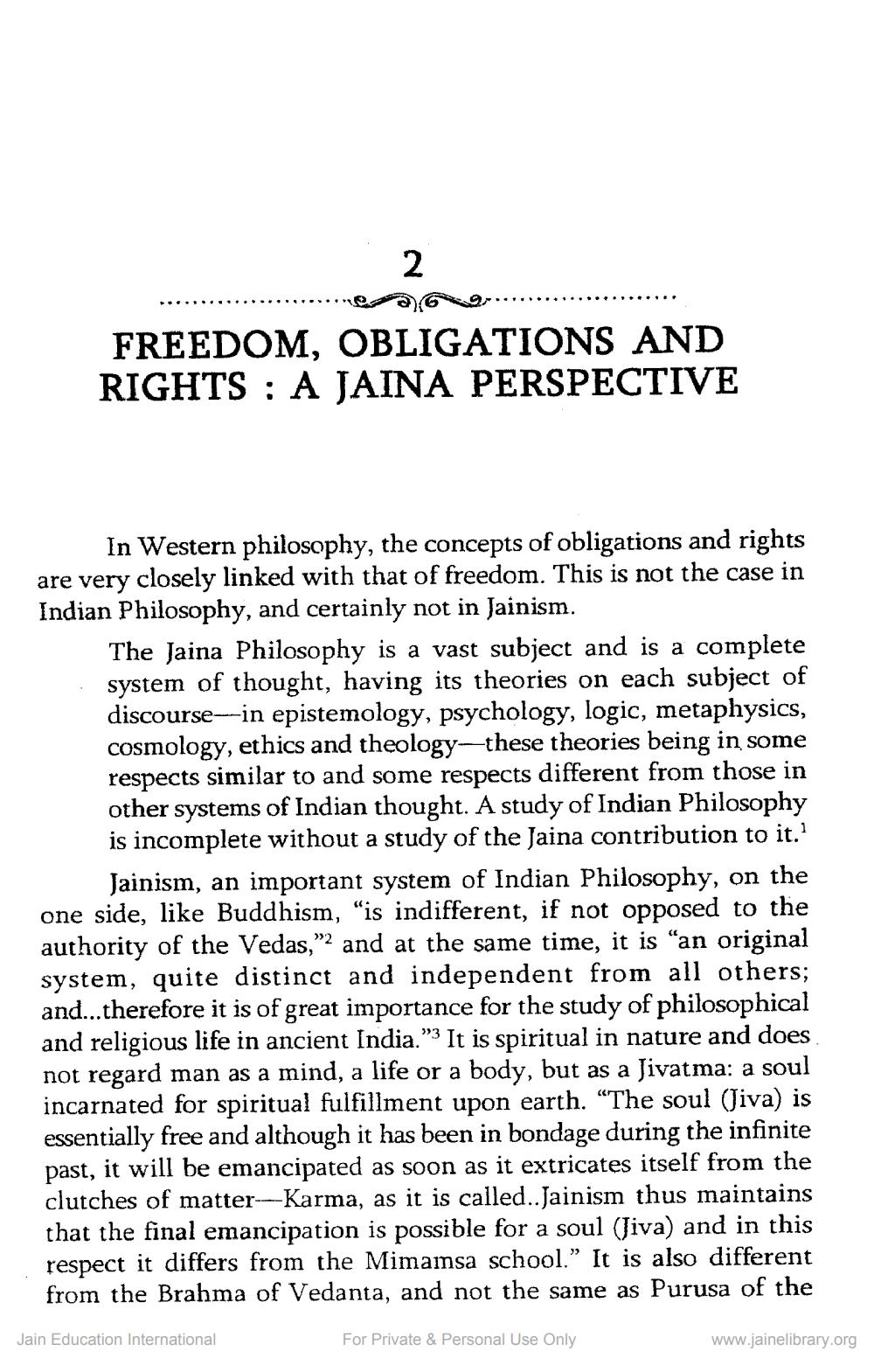________________
2
FREEDOM, OBLIGATIONS AND RIGHTS : A JAINA PERSPECTIVE
In Western philosophy, the concepts of obligations and rights are very closely linked with that of freedom. This is not the case in Indian Philosophy, and certainly not in Jainism.
The Jaina Philosophy is a vast subject and is a complete system of thought, having its theories on each subject of discourse--in epistemology, psychology, logic, metaphysics, cosmology, ethics and theology—these theories being in some respects similar to and some respects different from those in other systems of Indian thought. A study of Indian Philosophy is incomplete without a study of the Jaina contribution to it.
Jainism, an important system of Indian Philosophy, on the one side, like Buddhism, “is indifferent, if not opposed to the authority of the Vedas," and at the same time, it is "an original system, quite distinct and independent from all others; and...therefore it is of great importance for the study of philosophical and religious life in ancient India." It is spiritual in nature and does not regard man as a mind, a life or a body, but as a Jivatma: a soul incarnated for spiritual fulfillment upon earth. "The soul (Jiva) is essentially free and although it has been in bondage during the infinite past, it will be emancipated as soon as it extricates itself from the clutches of matter--- Karma, as it is called.. Jainism thus maintains that the final emancipation is possible for a soul (Jiva) and in this respect it differs from the Mimamsa school.” It is also different from the Brahma of Vedanta, and not the same as Purusa of the
Jain Education International
For Private & Personal Use Only
www.jainelibrary.org




